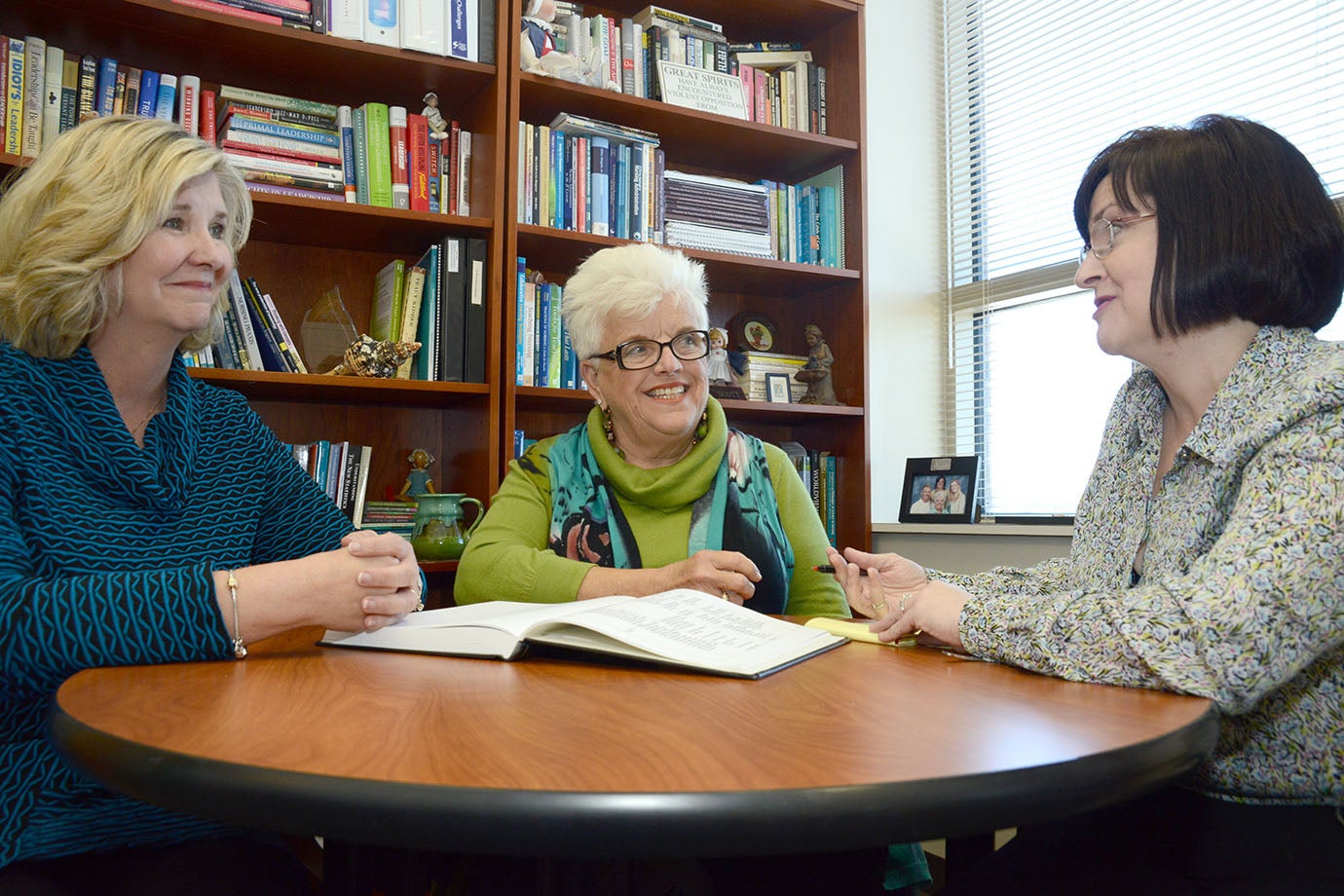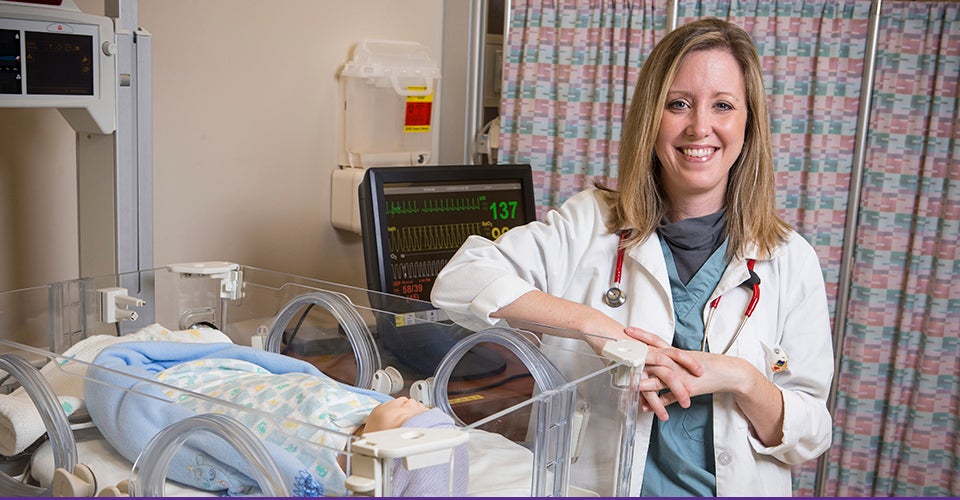NURSE SCHOLARS
PhD programs advance research in nursing
Many people have a fixed mental image of what modern nursing looks like – one that’s based on countless trips to physicians’ offices, clinics and hospitals across a lifetime.
“It’s the idea of a compassionate individual, dressed in a white coat or scrubs, delivering care at the bedside in a hospital,” explained East Carolina University nursing professor Dr. Elaine Scott.
But Scott, director of ECU’s PhD program in nursing, wants to expand the collective perception of this storied health care profession. She wants it to include the concept of nurses as scholars.
“Nursing is a science and an art – most often the public thinks of the caring art of nursing and remains unaware of the science that supports the interventions nurses use in their practice,” Scott explained. “PhD-prepared nurses conduct research to create nursing science that promotes healthy outcomes and establishes evidence-based practices in nursing. These nursing research findings also shape health policy and influence quality and safety initiatives.”
As the College of Nursing approaches 60 graduates from their 12-year-old PhD program, administrators have added three new academic options intended to facilitate nurses’ transition to the role of scientific thought leader.
NEW PhD PATHWAYS
This past August, three students enrolled in the newly formed DNP to PhD program, making the ECU College of Nursing one of only six schools in the country who offer this opportunity.
The DNP, or Doctor of Nursing Practice, targets nurses who want the highest level of education for clinical practice. This degree also equips nurses to solve problems and advance health by testing ideas for best nursing practice and implementing evidence generated by PhD-prepared nurses.
“Some DNP nurses return to practice and begin testing small changes in how nurses practice and want to do more,” Scott said. “They may decide they love research and need more education on how to conduct research. When that happens, returning to school for the DNP to PhD in nursing is a great option.”
Graduates of ECU’s PhD in nursing program are prepared to serve as tenure-track faculty members and deans of nursing, coordinate research and quality improvement at major hospitals, and analyze and set policy by working for organizations such as the North Carolina Board of Nursing and the Robert Wood Johnson Foundation.
Dr. Amy Jnah, a neonatal nurse practitioner at two different hospitals and director of the neonatal nurse practitioner program at ECU, decided she wanted to obtain her PhD while in the middle of earning her DNP. The newly established DNP to PhD program is allowing her to pursue her research interests, which center on mentoring, self-efficacy and self-confidence in inpatient, acute care nurse practitioners.
“I have such a passion for research, for research methodology and for interventional research,” said Jnah. “I know the PhD is going to help me develop in those areas so that I can take the knowledge that I get from this program and carry it on with me into the community and make a difference.”
All three students in the DNP to PhD program, including Jnah, were able to transfer at least 18 hours from their DNP program into their PhD coursework. All are expected to graduate within five semesters.
Though the DNP to PhD program is the newest addition to the College of Nursing, it’s not the first bridge program instituted to help nurses earn a PhD. Administrators previously established a program where nurses with a BSN, a Bachelor of Science in nursing, could seamlessly obtain a PhD. The three members of this program’s first cohort are close to the end of their PhD journey.
“It opens up a lot of doors for me as far as being able to teach at a university level,” said Albert Anderson, a registered nurse at Vidant Medical Center who is a dissertation away from graduation. “It is going to give me lots of options but I think it is as much personal motivation as it is anything.”
Anderson – whose research focuses on the safety culture of a nursing unit and the relationship the leader of the unit forms with a team – hopes to use his PhD to continue creating new knowledge for the discipline.
THE FUTURE OF NURSING
While these programs may further the reputation of ECU’s College of Nursing, they also address a need to prepare younger nurses for the future of the field. In most disciplines, the average age someone obtains a PhD is late 20s or early 30s. But the average age nurses obtain a PhD is mid- to late-40s.
College of Nursing administrators understand this issue and are doing their part to help the cause. In addition to varied paths for receiving a doctorate, they established a competitive program where incoming ECU Honors College freshmen can apply for early assurance of acceptance in the BSN to PhD program.
“We have this myth that nurses have to practice nursing and that you have to get out there and be a ‘real’ nurse before you can go back and get additional degrees,” said Scott. “We will give students who choose to pursue a BSN to PhD ways to develop clinical acumen and work part time, but we don’t want them to stop continuing their education while they are gaining that clinical competency.
“These young scholars are the future of nursing, the students who can help us drop that average of the nurse getting their PhD to below 40.”
“We need to be mentoring this group of rich, intelligent future nurse researchers to take on this challenge,” Scott added. “I think these programs are critical to achieving that goal.”

Left to right, Dr. Patricia Crane, associate dean for research and creative activities in the College of Nursing, speaks with PhD program Director Dr. Elaine Scott and Dr. Candace Harrington, a DNP to PhD student. (Photo by Conley Evans)
